Utah Rental Application Form

A Utah rental application form helps a landlord choose a prospective tenant who is well suited to rent a particular property. The form requests personal and employment information plus consent for a credit check (sometimes called a consumer report). Applications often collect a non-refundable fee, commonly equal to the cost of getting the relevant screening reports.
Utah Rental Application Laws
Utah has minimal regulations on the content or process of a rental application. Unlike some states, Utah does not cap application fees or require a specific recipient. In general, if the landlord wants the application fee to be nonrefundable, this must be noted in a clear writing to the prospective tenant. A Utah landlord cannot charge an application fee until informing the tenant in writing about the anticipated availability of the rental property as well as the specific criteria used for screening applications. [1]
Quick Guide To Process a Utah Rental Application
- Verify Credit – Order a credit report for the potential tenant; a score of 600-650 is a common minimum requirement. A credit report can be as simple as a “pass/fail” result or can have comprehensive details, including criminal history. ( NOTE: a credit report requires the tenant’s written and signed consent, on the application or separately )
- Verify Income – Check the potential tenant’s employment status and pay scale. This can be done through recent pay stubs and/or contacting the potential tenant’s employer.
- Check Rental History – Contact previous landlord(s) to confirm a potential tenant has in the past been a good renter and neighbor.
- Check Eviction History – Verify the potential tenant has honestly disclosed the details of any past evictions. An eviction check usually covers a longer period (previous 7 years) than a rental history check (previous 3 years).
- Check Criminal History – Confirm the potential tenant’s reporting of any criminal history, especially including a check of criminal databases like sex offender registries.
- Provide a Response – Approve the application if it’s a good fit, or, if rejecting the application, draft an appropriate adverse action notice to limit liability.
Utah Eviction Record Search
Utah eviction cases are matters of public record which anyone can access. While third-party services often automatically check eviction history as part of a screening report, this can also be checked manually. Unlike many states, Utah charges a nominal fee for this service. (Subscription plans are also available, but only worth the cost for high-volume clients who consistently do more than 40 record searches per week.)
This is the process for accessing Utah eviction records:
- Email the Administrative Office of the Courts with XChange in the subject line and a completed subscription agreement to be approved for an account with Utah State Courts’ XChange Case Search
- Login and payment information will normally be emailed within 48 hours
- Log in to XChange, enter the applicant’s name, and any cases involving the applicant will pop up
- Select the case number to be taken to a detailed case history (purchasable documents are in PDF format and cost $0.50 each, regardless of the number of pages)
Restrictions on Utah Rental Application Questions
The sample rental application provided on this page complies with federal law restricting the information a landlord can request. In general, it’s illegal under the Federal Fair Housing Act to screen tenants by asking for information about the following, or using these as a basis for approving or denying an application:
- Race
- Color
- National origin (nationality)
- Religion
- Sex (including sexual orientation and gender identity)
- Familial status (i.e., having or not having children)
- Disability (whether physical or mental)
Utah also considers public and/or rental assistance as an additional protected category under state law. There are some narrow exemptions for things like senior housing or certain very-small scale landlords, but local regulations may still apply. Always consult an attorney before attempting to ignore federal requirements.
Rejecting an Application: Adverse Action Notice
When taking an action which may disadvantage a potential tenant, a landlord may have to provide an adverse action notice informing the tenant about the decision (sometimes called a “conditional approval,” if the application is approved subject to meeting additional conditions). Federal regulations require an adverse action notice whenever a landlord collects a credit report and takes one of the following actions:
- Rejecting the potential tenant’s application
- Adding a requirement for someone to co-sign the potential tenant’s lease
- Demanding a larger security deposit than before, as a condition for renting
- Asking for higher rent after receiving the report
Important Features of an Adverse Action Notice
An adverse action notice must contain the following details:
- Note that the landlord took adverse action based on information in a consumer credit report
- Details of the consumer reporting agency
- Note that the landlord decided the adverse action, not the agency
- Declaration of the applicant’s right to a copy of the consumer credit report
- Declaration of the application’s right to dispute the report within 60 calendar days
While not legally required, it also is expedient for a landlord to explain the reasons for the adverse action, since this establishes a written record of issues with the application.
Fees in Utah
Utah has the following regulations on fees relating to a new rental:
- Rental Application Limit: No cap (but cannot charge without complying with disclosure requirements)
- Security Deposit Limit: No cap
- Pet Fee Limit: No cap (but must be “reasonable”)
Local jurisdictions may impose stricter regulations than the statewide standard. Always check local laws.
Sources
Before an owner accepts an application fee or any other payment from a prospective renter, the owner shall disclose in writing to the prospective renter:
- (i) a good faith estimate of:
- (B) the amount of each fixed, non-rent expense that is part of the rental agreement;
- (ii) the type of each use-based, non-rent expense that is part of the rental agreement;
- (iii) the day on which the residential rental unit is scheduled to be available;
- (iv) the criteria that the owner will consider in determining the prospective renter’s eligibility as a renter in the residential rental unit, including criteria related to the prospective renter’s criminal history, credit, income, employment, or rental history; and
- (v) the requirements and process for the prospective renter to recover money the prospective renter pays in relation to the residential rental unit, as described in Subsection (4).
Rental Application Forms in Other States
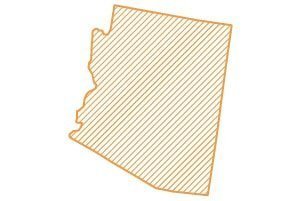
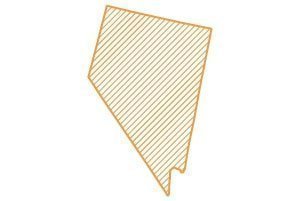
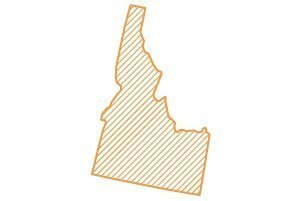
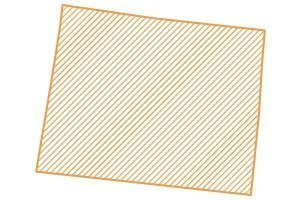


Other Utah Rental Templates
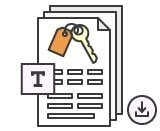
Residential Lease Agreement

Month-to-Month Rental Agreement
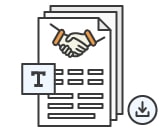
Residential Sublease Agreement

Room Rental Agreement

Lease Termination Notice



![]()
![]()
![]()
![]()
![]()
![]()
![]()
![]()
![]()
![]()
![]()